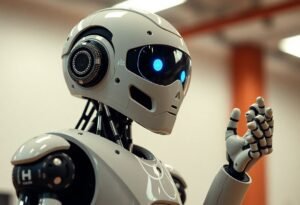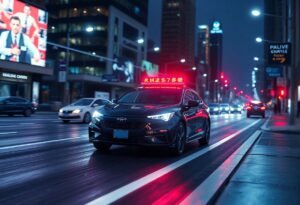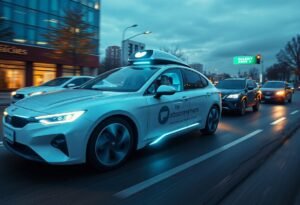The integration of AI and machine learning into urban development is transforming how cities innovate and engage with technology.
Transforming Urban Spaces with AI Innovation
Artificial Intelligence (AI) and machine learning play critical roles in developing smart cities. These technologies enable urban planners and developers to create more efficient systems that improve public safety, transportation, and resource management. By analyzing vast amounts of data, cities can anticipate challenges and implement innovative solutions that enhance residents’ quality of life. For instance, AI algorithms can optimize traffic flow, thereby reducing congestion and pollution. This proactive approach is vital for future urban resilience.
Enhancing Public Safety through AI
AI applications are increasingly being utilized to enhance public safety in smart cities. Through intelligent surveillance systems, law enforcement agencies can leverage machine learning algorithms to detect suspicious behavior and respond more swiftly to incidents. This technology allows for the analysis of video feeds and social media activity, improving crime prevention strategies. Furthermore, predictive policing models help allocate resources efficiently, ensuring that police presence is maximized in high-risk areas, thus fostering safer environments for all citizens.
Optimizing Transportation Systems
Transportation plays a crucial role in smart city development. AI and machine learning are revolutionizing how cities manage their transportation systems. For example, real-time data analytics can optimize routes for public transport, reducing wait times and enhancing user experiences. Additionally, AI-driven traffic management systems can adjust signal timings dynamically depending on traffic flow, leading to less congestion and reduced travel times. These innovations contribute significantly to the sustainability of urban environments.
Improving Energy Efficiency
AI technologies also contribute to smarter energy management in urban settings. By implementing machine learning algorithms, cities can analyze energy consumption patterns and optimize resource allocation. Smart grids powered by AI enable more efficient distribution of electricity, leading to reduced energy costs and lower carbon footprints. Moreover, predictive maintenance of infrastructure ensures that energy systems operate optimally, minimizing outages and inefficiencies.
Engaging Citizens through Smart Solutions
Modern smart cities increasingly emphasize citizen engagement through innovative technology. AI-driven platforms enable residents to provide feedback on services and report issues directly to city officials. This level of interactivity fosters stronger community ties and enhances governmental transparency. Furthermore, public applications powered by AI can facilitate access to local resources, event notifications, and safety alerts, empowering citizens to become active participants in their own urban environments.
Future of AI in Urban Development
The future of urban development lies in the continuous evolution of AI and machine learning technologies. As innovations progress, the ability to create cities that are not only smarter but also more resilient and sustainable will become a reality. For urban developers, adopting these technologies is essential to meet the challenges posed by rapid urbanization. By prioritizing the integration of AI, we pave the way toward intelligent cities that enhance living conditions for future generations.
Disclaimer: The information provided in this article is for educational purposes only and does not constitute professional advice.





















